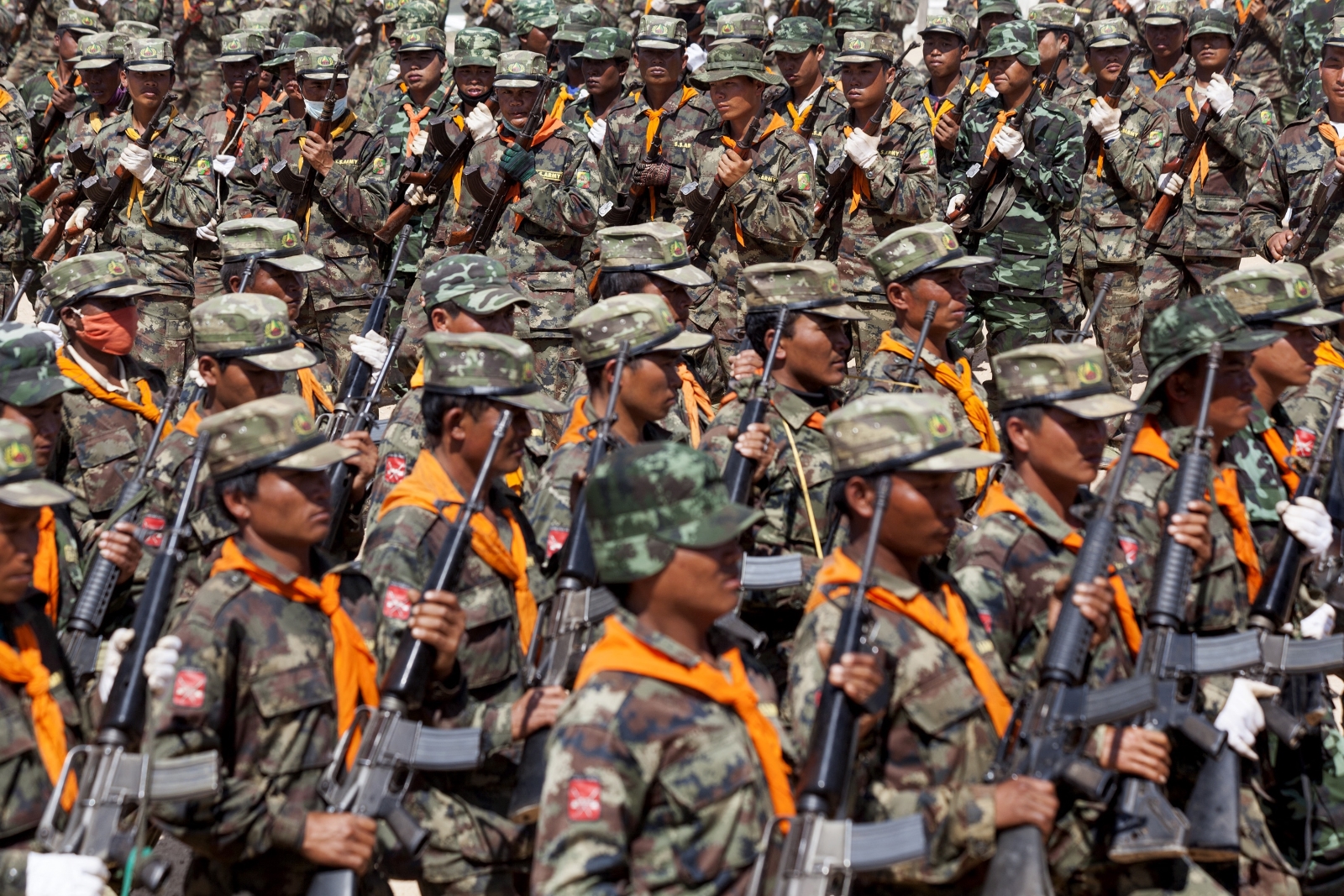By AFP
YANGON — Thousands have fled a Myanmar town bordering China after over 30 people were killed as the military fought back an assault force armed with rocket-propelled grenades and machine guns, officials said Tuesday.
The violence is some of the most intense to rattle the Chinese-speaking Kokang region since fighting in 2015 left scores dead and forced tens of thousands to flee into China.
Kokang has seen repeated bouts of heavy fighting between the army and a band of well-armed ethnic armed groups since November, undercutting a government peace bid.
The fighting has also raised fears of a repeat of 2015, when the displaced flooded across the border into China, raising tensions with Beijing.
Support more independent journalism like this. Sign up to be a Frontier member.
In a statement released Tuesday, the army said it used heavy artillery to repel rebels who swept into Laukkai, the capital of the Kokang region, before dawn on Monday.
Insurgents from the Myanmar National Democratic Alliance Army (MNDAA) “failed” in their attempt to take Laukkai, the army said, adding civilians and “some army officers” died in a series of clashes around the town.
An army source requesting anonymity told AFP late Monday that “about 7,000 local residents are fleeing to the China side because of fighting”.
The rebels, who were said to be wearing police uniforms when they made the surprise raid, suffered the heaviest losses with the military recovering 20 charred bodies it says belonged to fallen insurgents.
Communications have been cut around Laukkai but fighting continued on Tuesday morning, according to the leader of another rebel group allied with the insurgents in Kokang.
“Almost all residents from Laukkai town are fleeing,” said Brigadier General Nyo Tun Aung from the Arakan Army, estimating that thousands had left.
Many rebel groups in the border region share close cultural ties with China, speaking Chinese dialects and using the country’s yuan currency.
Observers believe Beijing holds some sway over the ethnic fighters and has a key role to play in peace talks that Myanmar’s de facto leader Daw Aung San Suu Kyi has tried to revive since coming to power last year.
The next round of negotiations is slated for March, but the date has slipped several times.







